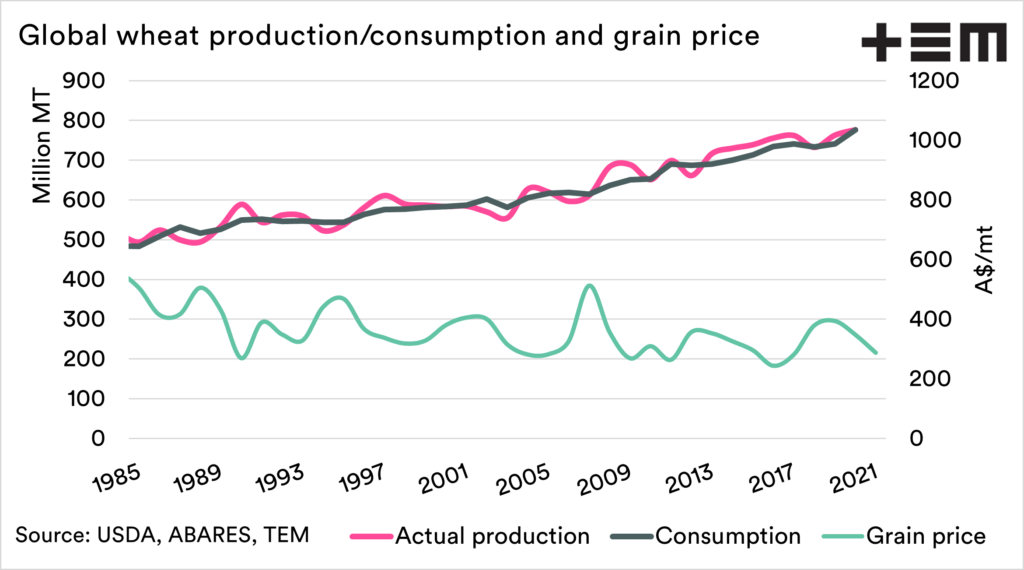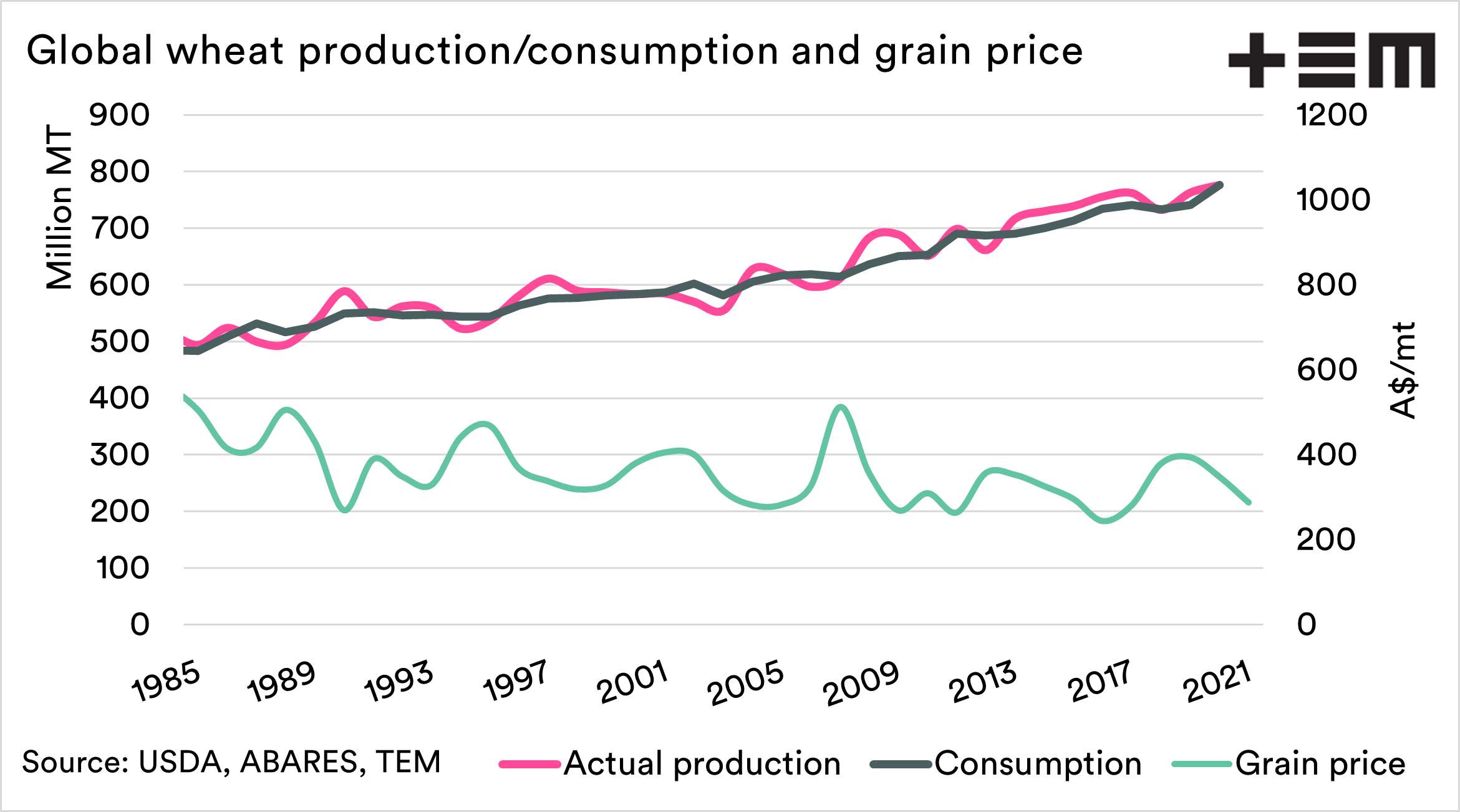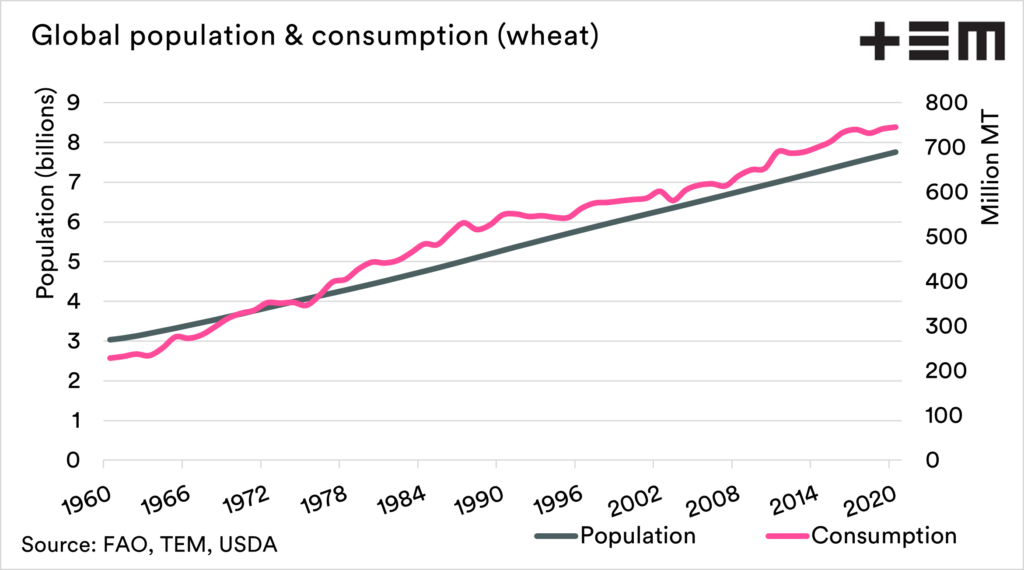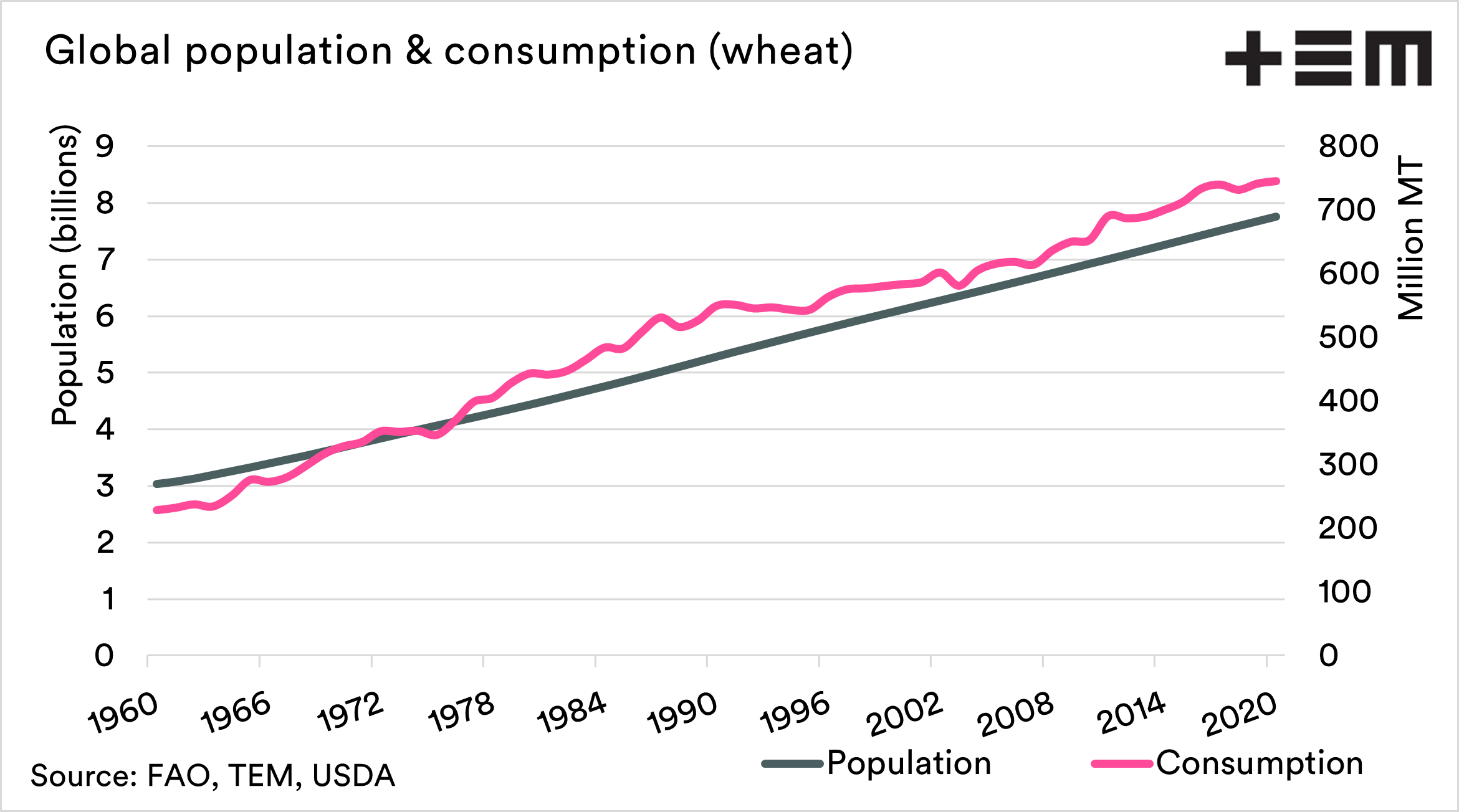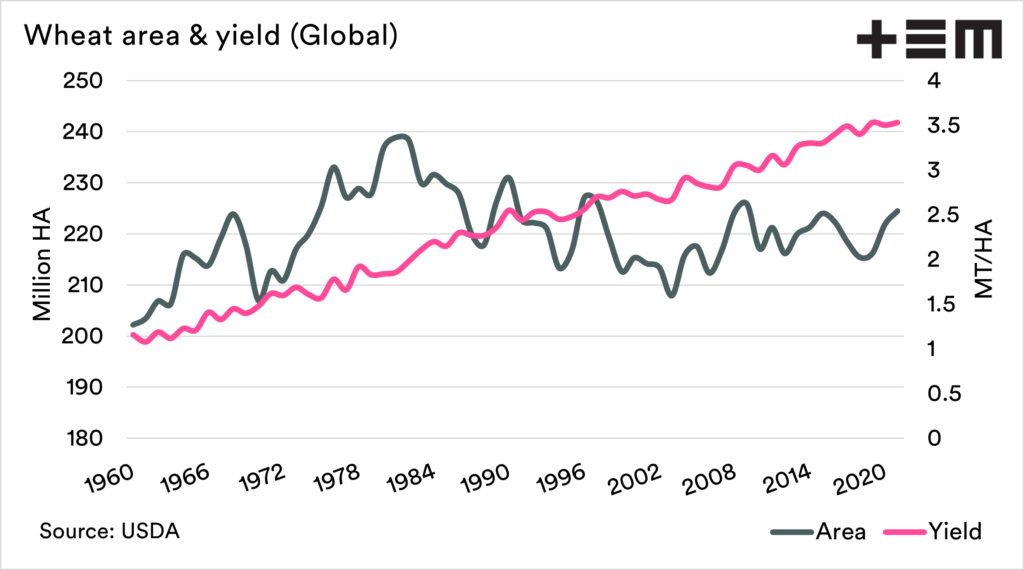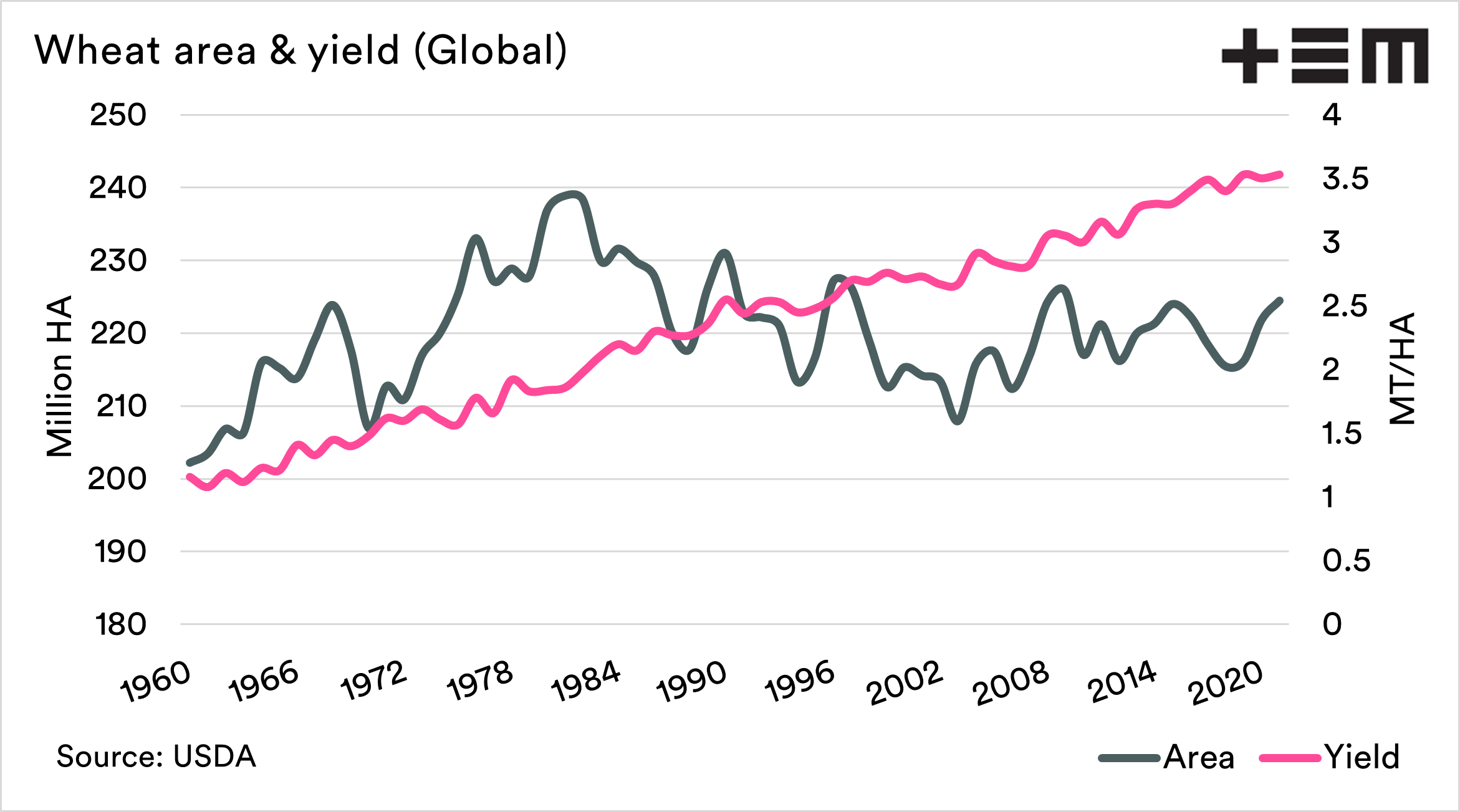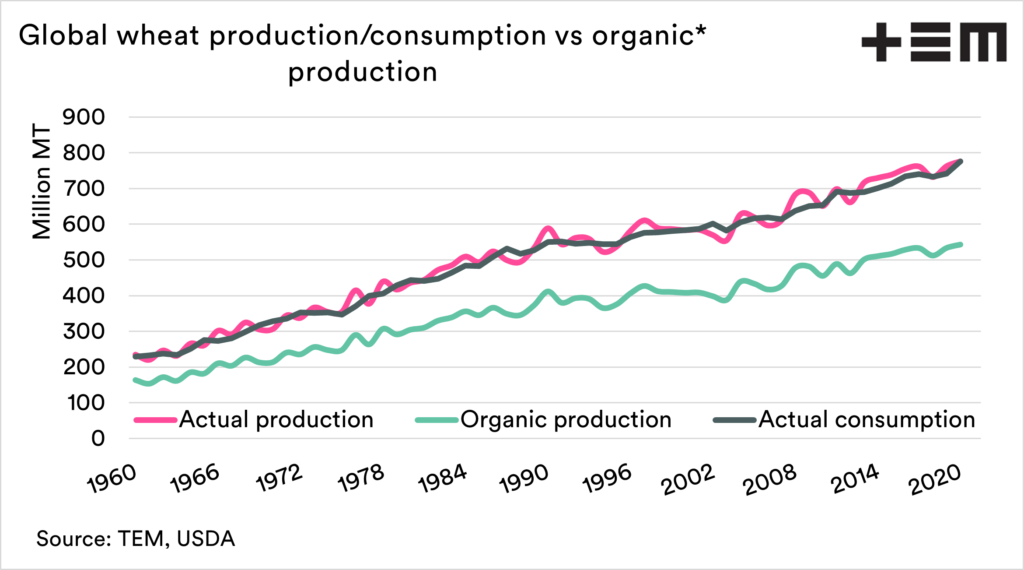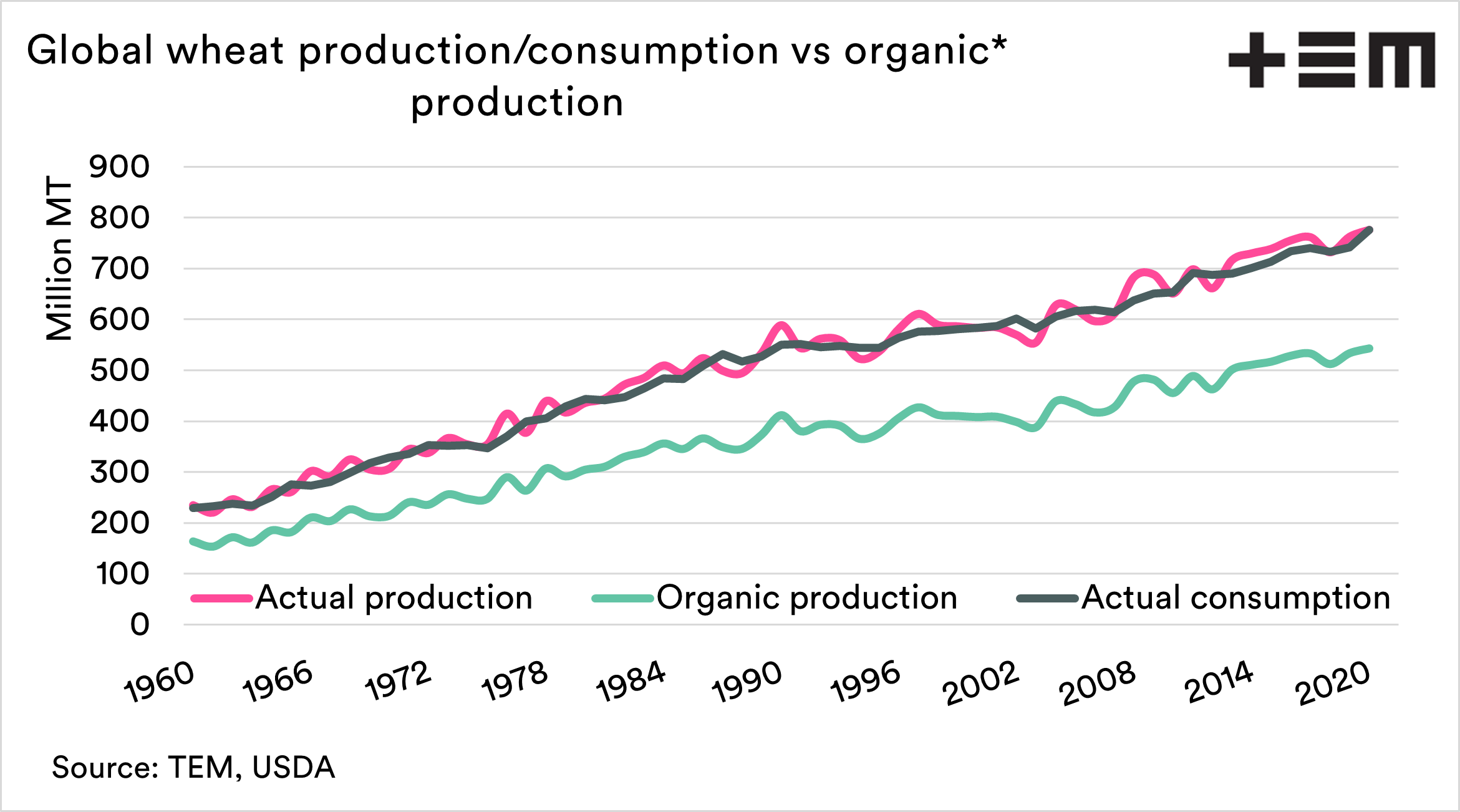An organic world, not a place I’d want to live.
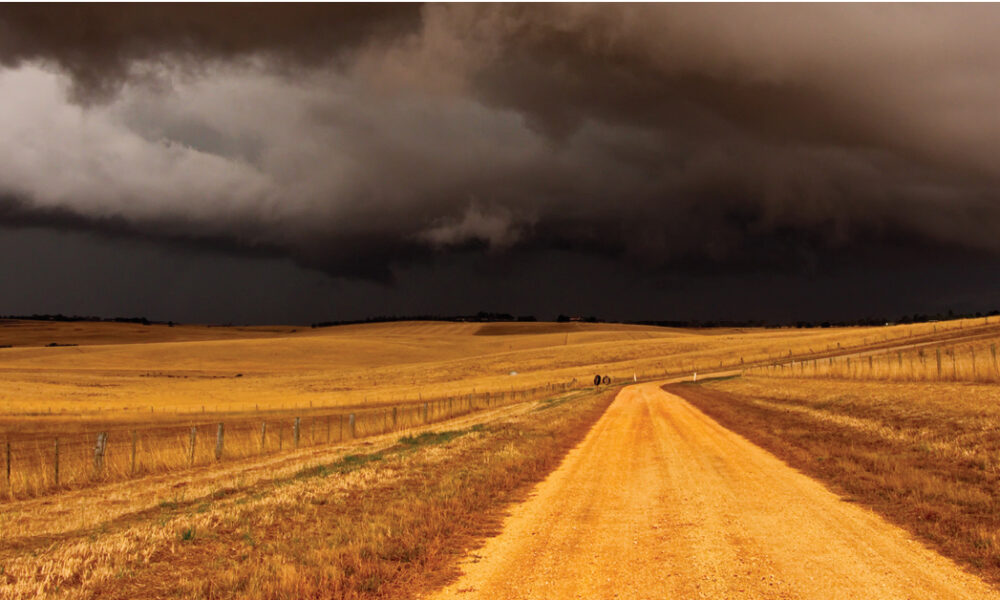
The Snapshot
- Productivity advances over the decades have resulted in wheat production keeping up with demand.
- Prices have remained flat due to our productive capacity.
- This production growth in wheat has been a result of increased yield rather than area.
- The yield gap between conventional and organic farming is on average 30%
- Conventional farming is required to feed the world.
- There is a place for organic farming, but it is limited mainly to affluent countries with consumers willing to pay a premium.
The Details
I was recently in a conversation separately to my work at EP3 on the AgWatchers podcast with rural journalist and author Gabrielle Chan. In this discussion, I commented that production increases in grain farming have meant that supply has largely kept up with demand. This has meant that prices in real terms have remained low.
Despite the impact of our production keeping prices relatively low, I commented that it is morally a good thing, as we have reduced world hunger through science. It got me thinking about organic farming and the push from some that this is better for the planet.
We regularly see messages from many, mainly outwith the agricultural industries spruiking that we should return to organic practices as if the old days were better.
So what would happen if the world moved to organics?
A little background.
As we all know, the world has been getting more crowded over the past decades. In the 1960s, the population was a little over 3bn, and now we are at 7.7bn. Projections are of over 9bn by 2050.
In the chart below, we can see that the population and consumption of wheat have had a close relationship over the decades. Has our production increased to meet population, or has our ability to produce allowed the population to grow.
I’ll leave that question to the philosophers and anthropologists.
The wheat driver
One thing we can confirm is that productivity growth has arisen from the application of science. The area that is devoted to wheat around the world hasn’t changed all that much in the past 60 years. The average area in the 1960s was 212m ha, and in the past decade has been 219m ha.
In the same period yields have increased from 1.27mt/ha to 3.3mt/ha. I’m no agronomist and don’t pretend to be one – so I’ll leave the explanation of why yields have increased to the experts. Suffice to say; it is research and development that has led to these fantastic yields.
The yield gap
So what would happen if we followed the advice of many and converted to organic farming? We first need to know what is the yield gap between conventional and organic farming.
I performed a short review of the research conducted in this field. The yield gap varies based on the study. Over 15 studies, the average yield gap was 30%, with a range of yield gap between 7 and 84% loss.
The chart below shows the actual global consumption and production since 1960 and modelled organic production if a 30% loss is considered.
In 2020, the world used 775m tonnes of wheat. If we switched to organic the planet would produce 543m tonnes. I don’t think I would like to live in a world with a deficit of that size, regardless of how high grain prices would be.
This ‘organic’ production shows that we would not meet our consumption levels if the world solely produced organic wheat. To meet these levels would require large acreages set to wheat production, either from clearing or displacing other activities.
Or a dystopian alternative with a much-reduced or hungrier population.
Morally right?
Whilst this is a very simplistic example, and in no way intended to be a piece of scientific literature, it does show that the world would struggle without conventional farming.
There are many well-meaning people who suggest that organic farming should be ushered in; however, it requires sacrifices;
- Deficient food production, potentially causing starvation.
- Large tracts of land moving into cropping.
There is a place for organic farming in the developed world where some consumers are willing to pay a substantial premium. However, it is not feasible on a global scale.
Conventional farming is a morally good choice and has helped keep the world going. Whilst the world is not going to switch to organic grain production any time soon, but it is concerning the move to ban some of our agronomic tools such as glyphosate and neonicotinoids.
Remember, you can sign up to receive our market analysis on agricultural commodities by clicking the link below. Our analysis is always independent and always free to access.
If you want to support our future work, sharing it with your friends and family is the best way to do that.
Sign up here

